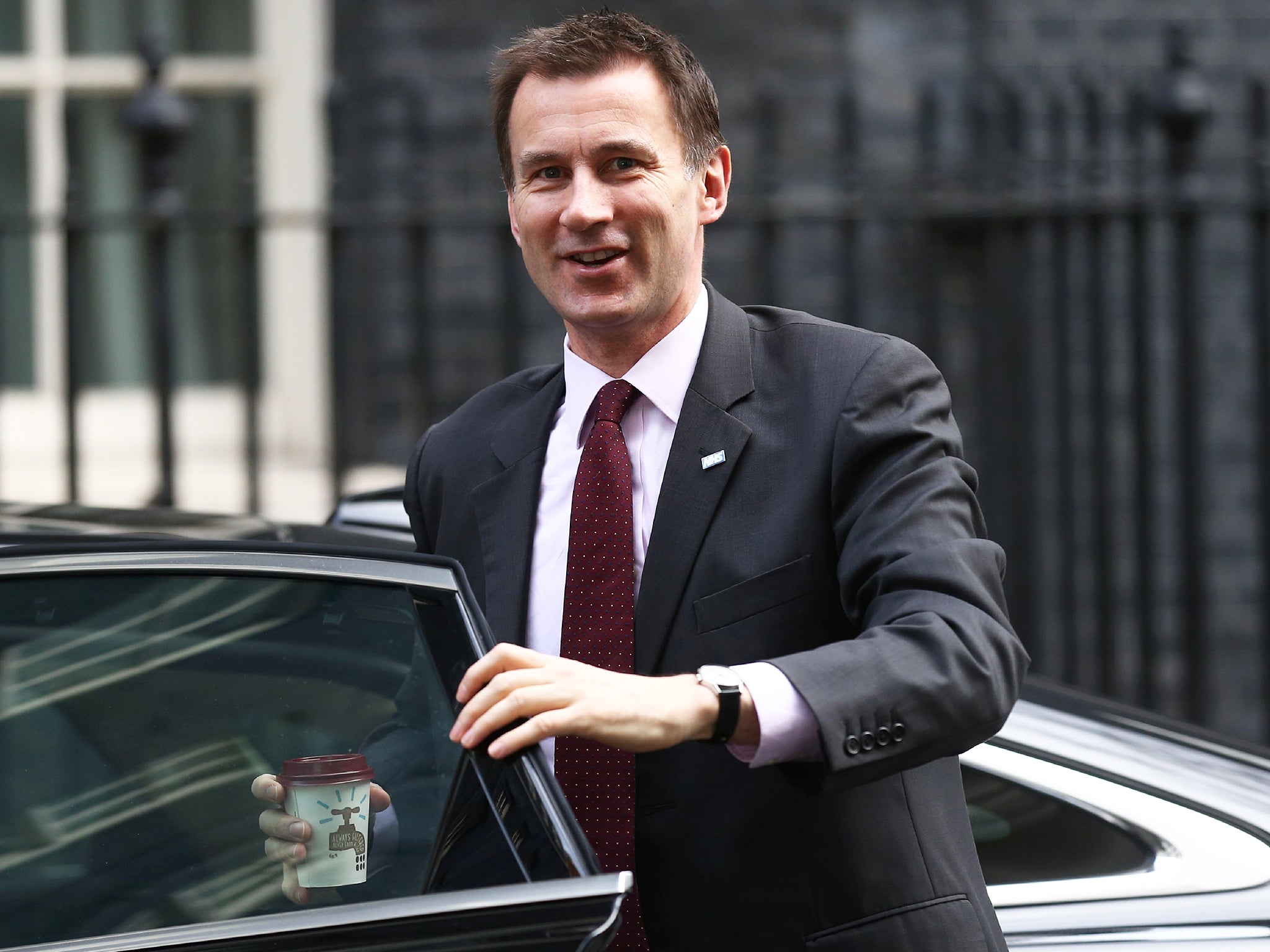Jeremy Hunt denies he is partly responsible for the junior doctors’ strike
The Health Secretary admitted he does have 'lessons to learn' from the months’ long dispute

Your support helps us to tell the story
From reproductive rights to climate change to Big Tech, The Independent is on the ground when the story is developing. Whether it's investigating the financials of Elon Musk's pro-Trump PAC or producing our latest documentary, 'The A Word', which shines a light on the American women fighting for reproductive rights, we know how important it is to parse out the facts from the messaging.
At such a critical moment in US history, we need reporters on the ground. Your donation allows us to keep sending journalists to speak to both sides of the story.
The Independent is trusted by Americans across the entire political spectrum. And unlike many other quality news outlets, we choose not to lock Americans out of our reporting and analysis with paywalls. We believe quality journalism should be available to everyone, paid for by those who can afford it.
Your support makes all the difference.Jeremy Hunt has denied he was partly responsible for the junior doctors’ strike but admitted he does have “lessons to learn” from the months’ long dispute.
The Health Secretary, who attracted the anger of doctors for his approach to the dispute, said that the new deal was a “win-win” and singled out BMA junior doctor leader Johanna Malawana as a pivotal figure in securing it.
However, he denied he was partly responsible for the BMA’s industrial action, which saw five strikes, including the first all-out walkout by junior doctors in NHS history.
“What changed was the brave decision by the leader off junior doctors committee of the BMA to have sensible, proper negotiations about weekend premium pay,” he said. “That’s something the BMA have not been willing to do for three years…once he’d done that we found that there were lots of other issues we were able to work out very quickly.”
Dr Malawana is a highly-respected figure among BMA members, who must now approve the new terms in a vote to be held during June and July.
But he did admit that he would take lessons from the dispute: “We have all got lessons to learn from what at times has been at times and incredibly bitter and protracted dispute,” he told BBC Radio 4’s Today programme the morning after the deal was struck.
“I don’t think you can go through what we’ve been through in the last 10 months and say that everyone hasn’t got lessons to learn, including the Health Secretary.”
The new settlement is based on a compromise on weekend pay, which will see doctors who work more than six weekends in a year earning salary top-ups that will increase the more weekends they work.
New measures to support doctors returning from maternity leave and increased pay premiums to attract doctors to understaffed specialties such as emergency medicine are also included in the new package.
Mr Hunt said the Government had secured its “red lines” and that the cost to hospitals of rostering junior doctors at the weekends would be reduced by a third, but declined to claim “victory” in the dispute.
Join our commenting forum
Join thought-provoking conversations, follow other Independent readers and see their replies
Comments